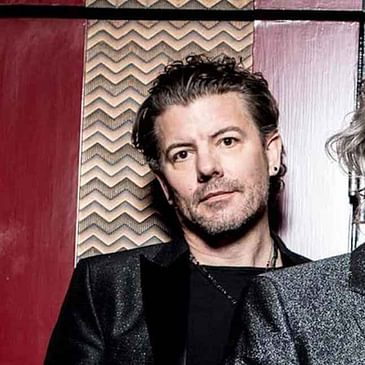Over the decades, Collective Soul has managed to avoid many of the pitfalls that torpedoed their contemporaries. The Georgia-based band saw a quick rise in the early 90s, on the backs of hits like "Shine" and "December." More than 30 years on, the band remains as solid a unit as ever, have maintained an extraordinarily consistent lineup. Longtime bassist Will Turpin joins us to discuss the band's rise and what keeps the group together all these years later. Transcript available here.
Hosted on Acast. See acast.com/privacy for more information.

